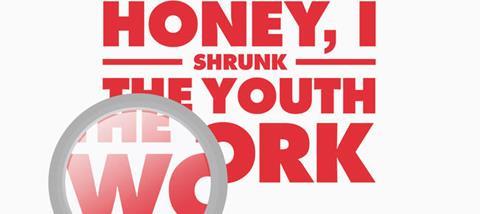
It’s the first question every youth worker asks, or at least really wants to ask the first time they meet another youth worker at a conference or event. You know the question, right? It usually goes something like this…
How big is your youth group?
There then follows an exchange reminiscent of a game of Top Trumps. How many young people are coming each week? How many are Christians? How many are non-Christians? How many have become Christians in the last year? How many have been baptised? How many have led revivals in their schools and planted churches? Ok, maybe not that last one! But it’s a familiar conversation and, of course, in this game of comparison the assumption is that he who has the most ‘bodies’ wins. Very rarely – in fact never - have I ever heard someone enthusiastically reply ‘I’ve got just five young people in my youth group – it’s fantastic!’ Sadly though, I have heard of youth groups closing because they had just a ‘handful’ of young people. Could it be that we’ve got this all wrong?
In Mark 3:7-11 we’re told – twice - that huge crowds of people came to hear and be healed by Jesus. A great multitude. This is great news of course. Jesus wants to impact the lives of the many. He wants to heal, restore and inspire the multitude. But he knows that’s not where you’re ultimately going to make your biggest eternal impact. Not with the crowd.
So Jesus reduces the size of his group. Mark 3:13 tells us that Jesus walks up a mountain, inviting a bunch of people to follow him. But not everyone. Less than the crowd – but more than 12 at this point. Jesus then spent the night praying (Luke 6:12) before he finally chose 12 men from the ‘bunch of people’ who would become his apostles - preaching and healing in his authority, but most importantly, accompanying him. A youth group of 12.
Even then, within the twelve, Jesus had favourites. Jesus chose Peter, James and John to share in some very special moments: the healing of Jairus’ daughter (Luke 8:40-56), Jesus’ transfiguration (Matthew 17:1-9), Jesus’ agony in Gethsemane (Matthew 26:36-38). It’s no surprise therefore that Peter, John and James play founding roles in the birth of the early Church. Jesus invests most of his time and energy into these three men and they go on to make the biggest impact.
Jesus is clearly operating to an entirely different definition of big. Yes, thousands of people flocked to see Jesus all the time but he knew that the biggest thing he could do was pour his life into a handful of people – helping them to follow him, helping them to help others do the same.
You’re never going to make your biggest eternal impact on a crowd
In Matthew 28:18-20, Jesus famously gives us his Great Commission. We are commanded to make disciples – apprentices – of Jesus. You cannot disciple a crowd. The smaller the number of people you disciple, the bigger your kingdom impact. This is what Jesus models to us and yet you’d never guess this by looking at most youth work, or in fairness, church life, and I say this as a Pastor of a local church. (By the way, if your vicar / pastor / minister is concerned about your commitment to ‘small’ then just tell him you’re simply embracing Jesus way of doing disciple-making!)
I’m not suggesting that we jettison the ‘crowd’. Jesus did stuff with crowds. There’s a place for the crowd (whether you have a crowd of 25, 250 or 2,500). But let’s not deceive ourselves into thinking that this is where the biggest kingdom impact is made.
For example, I love preaching and my role with Urban Saints has given me the privileged opportunity to preach to hundreds – sometimes thousands – at youth events across the country and beyond. But that’s not where I’m making my biggest impact. The biggest impact I’m making for Jesus right now is with Will (16), Tayo (17) and Joshua (17) who I meet with every week to do life with. They have become my youth group. I have a youth group of just three people. Yes, my church is running some other youth and children’s groups (‘crowd’) that I believe in and support but genuine disciple-making is happening with Will, Joshua and Tayo (or at least, we’re trying). I can’t pour my life in to tens of young people but I can pour my life in to these three guys. If it’s good enough for Jesus then it has to be good enough for us, right?
So if you’re willing to embrace a new definition of big, where do you start?




























